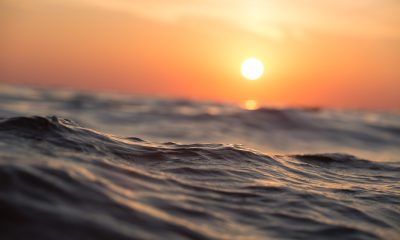News
Japanese nuclear disaster didn’t affect fish or human health: B.C. oceanographer

Goshiki-numa(swamp) Trail, Yama-gun(county) Fukushima-ken(Prefecture), Japan (Photo: TANAKA Juuyoh (田中十洋)/Flickr, CC BY 2.0)
VANCOUVER — Radioactive contamination following a nuclear power-plant disaster in Japan never reached unsafe levels in the north Pacific Ocean for either marine life or human health, says a British Columbia scientist.
Chemical oceanographer Jay Cullen of the University of Victoria has monitored levels of contamination from radioactive isotopes, used in cancer therapies and medical imaging, since the meltdown of three reactors at the Fukushima Daiichi plant in 2011 following a tsunami triggered by an earthquake.
“We’re confident in saying that the levels that we see now in our part of the Pacific from Fukushima are below those levels that represent a significant health risk either to the Pacific Ocean or to human beings in Canada or the west coast of North America,” said Cullen, who is one of nine international authors of a study published last week on the findings in Environmental Science and Technology.
“We haven’t been able to detect changes in the amount of these artificial isotopes that are in our Pacific salmon and steelhead trout or shellfish that we’ve collected all up and down the coast,” he said.
Contamination levels were about one-tenth of what was seen in the north Pacific in the late 1950s and 60s before the ban of above-ground nuclear weapons testing, primarily by the United States and the former Soviet Union, Cullen said.
“Now what we see are levels that are similar to what we had in our part of the Pacific back in the 1970s,” he said, adding those did not approach amounts believed to be harmful.
He said scientists now know that most of the radioactive contamination reached offshore British Columbia in 2015 and 2016, as predicted by ocean circulation models.
Citizen scientists have helped collect monthly samples of sea water and annually gather fish and shellfish samples for analysis, he said.
Cullen also leads a network called Fukushima InFORM, or Integrated Fukushima Ocean Radionuclide Monitoring.
The network monitors marine radioactivity at distances up to 1,500 kilometres off the coast of British Columbia and brings together Canadian and American scientists, health experts and non-governmental organizations.
“A Canadian monitoring program for the sampling and analysis of seawater for Fukushima radioactivity was initiated shortly after the accident and in the U.S., crowdfunding and ships of opportunity were used to monitor the progress and arrival of Fukushima plume along the coast,” the study says.
Contamination levels decay over time and will continue dropping along the coast of B.C., Cullen said, adding further studies will be done until 2019.
Radiation guidelines are set by Health Canada’s Radiation Protection Bureau.
“The levels of radioactive contamination that we measured off British Columbia right now, they’re about a factor of 1,000 lower than the levels that are permissible in our drinking water that don’t lead to health problems for Canadians who drink average amounts of water over a year,” Cullen said.
Cesium-134, a radioactive isotope that leaked from the plant, has a half life of 30 years while Cesium-137’s half life is two years, he said of some of the Fukushima contaminants that were detected in the ocean.
“We know that all the other Cesium-134 that’s been released into the environment from weapons testing or from the Chernobyl (nuclear) disaster back in 1986, those are far enough in the past they don’t exist in the environment anymore. So if we detect Cesium-134 we know it’s a fingerprint of the Fukushima disaster.”
Contamination levels detected in the north Pacific are thousands of times lower than what was found off Fukushima after the disaster, Cullen said.
Commercial fishing in Fukushima Prefecture, Japan, the site of the nuclear plant, is still closed.
Testing of about 100,000 fish since 2011 showed contamination levels initially exceeded food-safety guidelines, Cullen said.
“In the last two years, none of the fish they’ve caught, even in Fukushima Prefecture, exceed their food-safety guidelines.”























